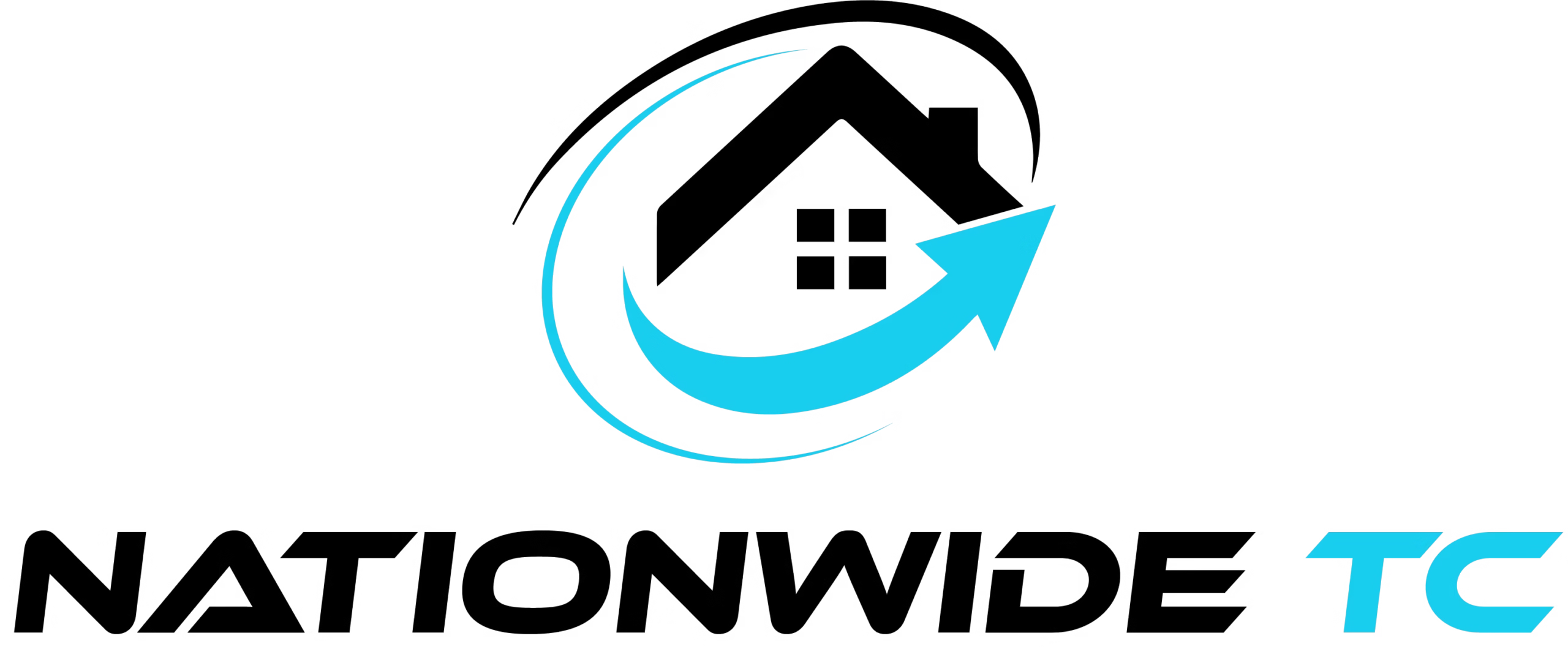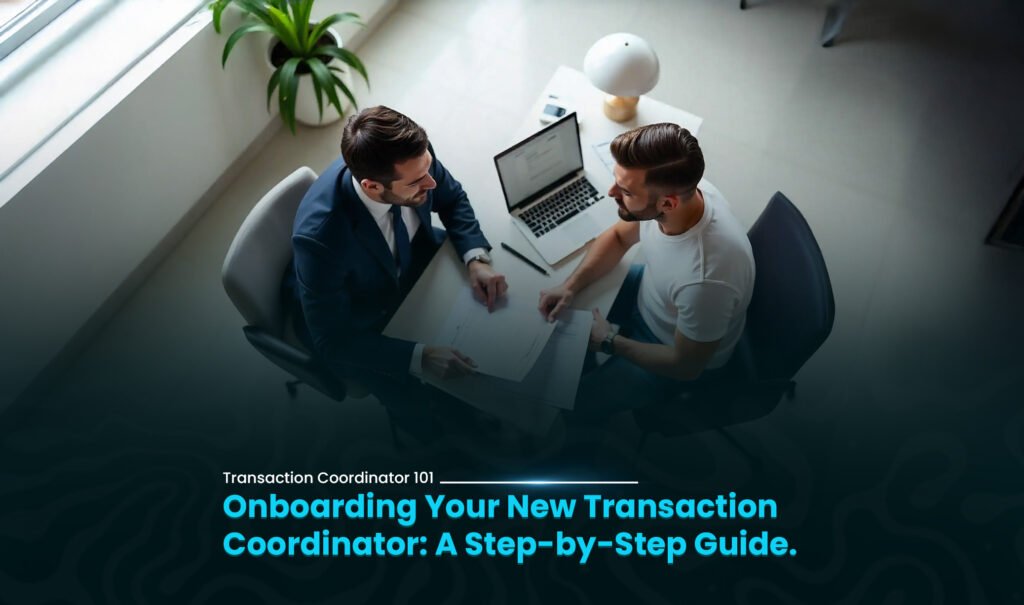Complete Guide to Onboarding Your New Transaction Coordinator
You have successfully hired a new Transaction Coordinator professional. Furthermore, the interview process helped you find an excellent match. Moreover, the crucial next step begins with comprehensive onboarding. Additionally, a well-structured onboarding process ensures a smooth transition. Therefore, it integrates your new Transaction Coordinator seamlessly into operations. Similarly, it sets them up for long-term success. Furthermore, this blog post provides a step-by-step guide for effective onboarding. Additionally, we cover everything from initial preparations to ongoing support. Ultimately, a thorough onboarding transforms your new hire into an asset.
The Importance of Effective Onboarding for Transaction Coordinator Success
Onboarding represents more than just standard paperwork completion. Furthermore, it becomes a strategic investment in your new Transaction Coordinator. Additionally, a strong onboarding program sets clear expectations effectively. Moreover, it provides necessary tools and comprehensive training. Similarly, it fosters a sense of belonging and professional confidence. Conversely, a rushed or disorganized onboarding leads to confusion. Additionally, it might cause frustration and even early turnover. Therefore, dedicating time and resources to this process becomes paramount. Ultimately, it ensures your new Transaction Coordinator hits the ground running.
Why Onboarding Impacts Performance Directly
A well-onboarded Transaction Coordinator performs significantly better than untrained counterparts. Furthermore, they understand your specific workflows much more quickly. Additionally, they learn your preferred communication styles and methods. Moreover, they grasp your brand’s unique values and standards. Therefore, this comprehensive understanding leads to fewer costly errors. Additionally, it ensures greater efficiency in daily operations. Similarly, it boosts their overall productivity and job satisfaction. Consequently, effective onboarding directly impacts their job performance levels. Finally, it sets them up for immediate and sustained success.
Reducing Ramp-Up Time for Your New Transaction Coordinator
Every new hire needs time to become fully productive. Furthermore, this “ramp-up” period can prove costly for businesses. Additionally, a structured onboarding process significantly shortens this time. Moreover, it provides a clear roadmap for effective learning. Similarly, it offers immediate access to vital resources and tools. Therefore, it streamlines the learning curve for new hires. Consequently, your new Transaction Coordinator becomes a valuable contributor faster. Finally, this quick integration maximizes your hiring investment completely.
Phase 1: Pre-Onboarding — Preparing for Your New Transaction Coordinator
Preparation begins even before their official first day starts. Furthermore, this phase sets the stage for a positive beginning. Additionally, a well-organized pre-onboarding process shows professional standards. Moreover, it makes your new Transaction Coordinator feel valued immediately. Therefore, focus on administrative setup and initial communication strategies. Ultimately, this proactive approach ensures a seamless welcome experience.
Setting Up the Digital Workspace
Access to the right tools becomes critical for success. Furthermore, your Transaction Coordinator relies heavily on modern technology daily.
Create necessary accounts: Additionally, set up logins for your CRM system. Moreover, include transaction management software and communication platforms.
Grant access permissions: Furthermore, ensure they have correct access levels. Additionally, include shared drives and essential document repositories.
Set up email and communication channels: Moreover, establish their professional email address. Additionally, add them to relevant team communication groups.
Prepare any hardware: Furthermore, ensure their workstation is ready. Additionally, for remote professionals, confirm their technical capabilities.
Therefore, this groundwork ensures they can start working efficiently immediately. Moreover, it prevents frustrating technical delays and setbacks.
Preparing Essential Documentation and Resources
Gathering vital information streamlines their learning process significantly. Furthermore, this provides a comprehensive reference library for success.
Compile a welcome packet: Additionally, include an organizational chart. Moreover, add team contact lists and key company policies.
Organize standard operating procedures (SOPs): Furthermore, provide detailed guides for transactions. Additionally, include checklists for buyer and seller transactions.
Share templates: Moreover, offer access to email templates. Additionally, provide document templates and communication scripts.
Provide access to past transaction files: Furthermore, allow them to review successful deals. Additionally, ensure all files are properly anonymized.
Outline compliance guidelines for US markets: Moreover, provide clear information on regulations. Additionally, include state-specific real estate laws and requirements.
Therefore, this resource library empowers them to learn independently. Moreover, it ensures consistency in all their work.
Initial Communication with Your New Transaction Coordinator
A warm welcome makes a strong first impression. Furthermore, it builds excitement for their official start.
Send a welcome email: Additionally, confirm their start date and time. Moreover, include their first-day agenda and expectations.
Provide logistical details: Furthermore, explain where to go on day one. Additionally, clarify what to bring and who to contact.
Introduce them to the team: Moreover, facilitate virtual introductions if remote. Additionally, this makes them feel part of the group.
Therefore, this communication alleviates first-day jitters completely. Moreover, it establishes a positive tone for working relationships.
Phase 2: First Week — Immersion and Foundational Training
The first week becomes crucial for complete immersion. Furthermore, it lays the groundwork for their business understanding. Additionally, focus on orientation, initial training, and critical introductions. Moreover, this hands-on approach helps your Transaction Coordinator understand their role.
Comprehensive Orientation and Professional Introductions
Help them understand their place within the team structure. Furthermore, foster early connections with team members effectively.
Conduct a detailed company overview: Additionally, explain your mission and values. Moreover, discuss long-term business goals and objectives.
Introduce them to key team members: Furthermore, facilitate one-on-one meetings with agents. Additionally, ensure they understand support relationships clearly.
Explain team dynamics and culture: Moreover, share how the team collaborates. Additionally, discuss preferred work styles and communication methods.
Review their job description thoroughly: Furthermore, ensure they understand specific duties. Additionally, clarify their responsibilities as a Transaction Coordinator.
Therefore, this fosters a sense of belonging quickly. Moreover, it clarifies their role within the team structure.
Initial Training on Your Specific Workflows
Every real estate business has unique processes and procedures. Furthermore, detailed training becomes essential for success.
Walk through your transaction process step-by-step: Additionally, use live examples. Moreover, provide mock scenarios for practice.
Demonstrate use of your specific software and tools: Furthermore, provide hands-on practice opportunities. Additionally, ensure they understand all features completely.
Review compliance procedures for US markets: Moreover, ensure they understand regulations. Additionally, cover state-specific legal requirements thoroughly.
Explain your preferred communication standards: Furthermore, discuss response times. Additionally, cover tone expectations for various interactions.
Therefore, this hands-on training ensures they learn your methods. Moreover, it builds their confidence in managing deals.
Assigning a Mentor for Your Transaction Coordinator
A dedicated point person provides invaluable ongoing support. Furthermore, they offer guidance and answer questions effectively.
Designate an experienced team member: Additionally, choose someone available for queries. Moreover, ensure they understand their mentoring responsibilities.
Schedule regular check-ins: Furthermore, encourage informal daily meetings. Additionally, establish weekly progress discussions.
Encourage open communication: Moreover, create a safe space for questions. Additionally, ensure they feel comfortable seeking clarification.
Therefore, this mentorship accelerates learning significantly. Moreover, it helps your Transaction Coordinator feel supported.
Phase 3: First Month — Deepening Knowledge and Practice
Beyond the initial week, the first month solidifies understanding. Furthermore, it allows for practical application and feedback. Additionally, this phase focuses on active participation and learning. Moreover, your Transaction Coordinator begins taking on independent responsibilities.
Gradual Assignment of Responsibilities
Start with manageable tasks and gradually increase the workload. Furthermore, this prevents overwhelming new hires completely.
Begin with simpler transactions: Additionally, allow them to master areas. Moreover, progress to more complex deals gradually.
Shadow existing transactions: Furthermore, have them observe seasoned professionals. Additionally, learn from live deal management.
Assign independent tasks with supervision: Moreover, gradually increase their autonomy. Additionally, build confidence through successful completion.
Encourage proactive contributions: Furthermore, ask for their insights. Additionally, welcome process improvement suggestions.
Therefore, this phased approach builds confidence systematically. Moreover, it ensures quality control during learning.
Regular Performance Feedback and Check-Ins for Transaction Coordinator Development
Consistent feedback becomes crucial for professional development. Furthermore, it helps address issues early and effectively.
Schedule weekly one-on-one meetings: Additionally, discuss progress and challenges. Moreover, cover upcoming tasks and priorities.
Provide constructive feedback: Furthermore, highlight successes and achievements. Additionally, identify areas for improvement.
Encourage self-assessment: Moreover, ask about their progress perception. Additionally, discuss their confidence levels honestly.
Review completed transactions together: Furthermore, discuss successful elements. Additionally, identify areas for future improvement.
Therefore, this ongoing dialogue fosters professional growth. Moreover, it ensures your Transaction Coordinator stays on track.
Continuous Learning and Professional Development
The real estate industry evolves constantly with new regulations. Furthermore, continuous learning becomes key to success.
Share industry updates and relevant news: Additionally, keep them informed on trends. Moreover, discuss market changes affecting transactions.
Recommend relevant training courses or webinars: Furthermore, encourage professional growth. Additionally, support their skill development actively.
Discuss new software features and best practices: Moreover, help them stay current with technology. Additionally, ensure they understand system updates.
Therefore, this investment in their development benefits your business. Moreover, it ensures your Transaction Coordinator remains an expert.
Phase 4: Beyond the First Month — Ongoing Support and Empowerment
Onboarding becomes an ongoing process extending beyond initial weeks. Furthermore, it extends far beyond the first month. Additionally, this phase focuses on empowering your Transaction Coordinator completely. Moreover, it fosters a long-term partnership for success. Therefore, it ensures their continued success and integration.
Fostering an Environment of Trust and Empowerment
Trust becomes fundamental for any strong partnership. Furthermore, empower your Transaction Coordinator to take complete ownership.
Delegate with confidence: Additionally, show trust in their abilities. Moreover, allow them to make decisions independently.
Encourage independent problem-solving: Furthermore, let them find solutions first. Additionally, intervene only when absolutely necessary.
Value their input and suggestions: Moreover, show their perspective matters. Additionally, implement their good ideas when appropriate.
Celebrate their successes: Furthermore, acknowledge their contributions. Additionally, recognize their role in seamless transactions.
Therefore, this empowerment builds loyalty and dedication. Moreover, it encourages them to perform at highest levels.
Providing Resources for Continued Growth
Support their long-term professional journey effectively. Furthermore, this demonstrates your commitment to their success.
Offer opportunities for specialized training: Additionally, help them become experts. Moreover, focus on specific areas of interest.
Encourage participation in industry events: Furthermore, help build their network. Additionally, support their professional connections.
Discuss career development paths: Moreover, show opportunities for advancement. Additionally, plan their future growth within your organization.
Regularly update their resource library: Furthermore, provide new SOPs. Additionally, share updated templates as processes evolve.
Therefore, this commitment to growth ensures skilled professionals. Moreover, it secures their long-term dedication to your team.
Incorporating Feedback from Your Transaction Coordinator
Their unique perspective becomes invaluable for process improvement. Furthermore, they see transaction processes from different angles.
Regularly solicit their feedback on processes: Additionally, ask for efficiency suggestions. Moreover, welcome their improvement ideas.
Listen actively to their insights: Furthermore, show their opinions matter. Additionally, demonstrate respect for their expertise.
Implement their good ideas: Moreover, show contributions lead to improvements. Additionally, credit them for successful changes.
Therefore, this creates a collaborative environment for everyone. Moreover, it makes your Transaction Coordinator feel valued.
Conclusion: A Seamless Start for a Productive Partnership
Onboarding your new Transaction Coordinator effectively becomes a strategic imperative. Furthermore, it transforms a new hire into a high-performing partner. Additionally, by preparing thoroughly and providing comprehensive training, you succeed. Moreover, offering ongoing support sets them up for success. Therefore, this meticulous onboarding process reduces ramp-up time significantly. Additionally, it prevents costly errors and boosts efficiency. Furthermore, it creates a foundation for long-term success. Ultimately, a well-onboarded Transaction Coordinator becomes the invisible hand. Moreover, they ensure seamless transactions and drive your business forward.
Click here to learn more about why a Transaction Coordinator is important for your Real Estate success!
Book a Free 15 Minute Call Today and Find Out More About Our Services!



